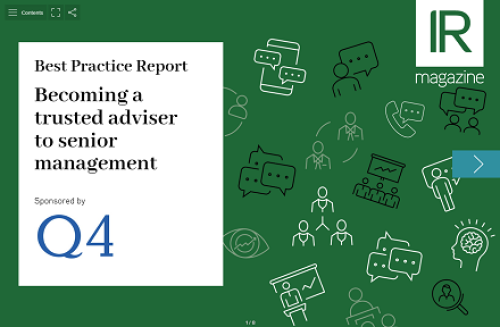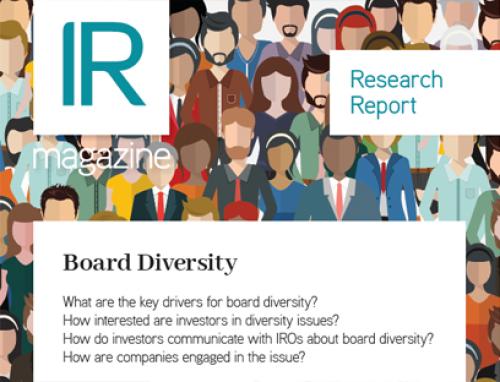A roundup of academic research from the world of IR studies
True or false?
1. Restaurant company annual reports contain more optimism and charismatic rhetoric than those issued by oil firms.
2. The BP oil spill affected the shareholder wealth of oil and gas firms other than BP.
3. Longer 10Ks produce lower analyst estimate dispersion.
4. Keep ’em happy.
5. Islamic banks disclose more sustainability information than conventional banks.
Multiple choice
6. According to an Australian study, which two intangibles do investors ignore in IPO prospectuses, and which four play a very significant valuation role?
* Brand name
* Trademark
* Patents
* Capitalized R&D
* Goodwill
* License costs
7. You have forward-looking voluntary disclosures to make. They’re optimistic and will be on your website. You want them to sound credible. Do you:
a) Hope management meets its current earnings forecast
b) Concurrently disclose positive governance qualities
8. Investors tend to make their decisions based on:
a) Technical analysis
b) Fundamental analysis
c) News about general market conditions
Answers (one point per correct answer)
1. True. A University of Nebraska study also finds both types of firms sound more optimistic than usual only when financial performance is well above par.
2. False. Only companies with US offshore drilling operations saw declines, according to researchers at Florida State University. They also find evidence that those with more expansive environmental disclosure suffered a smaller negative effect, possibly because shareholders believe firms with more extensive environmental disclosures can better address future regulatory costs and similar tragedies.
3. False. University of Notre Dame investigators compared the popular ‘Fog Index’ for readability against brute number count: for ‘effective communication of valuation-relevant information’ shorter 10Ks do significantly better. ‘The less material analysts and investors have to assimilate to get valuation-relevant information from company managers, the better analysts are at predicting subsequent value-relevant events,’ conclude the study’s authors.
4. True. In 2010 an Indiana University study found a 90 percent correlation between Twitter mood and stock market values. More recently, a German study of US Facebook user status updates finds a one standard deviation increase in Facebook’s Gross National Happiness Index predicts a 12 percentage point increase in market returns the next day.
5. True. At least they do in Bangladesh, according to researchers in Malaysia.
6. Goodwill and license costs are insignificant ingredients in the level of underpricing on the Australian Stock Exchange.
7. Both. An experiment published in the Journal of Financial Reporting and Accounting finds each a vital characteristic when it comes to the credibility of voluntary disclosures.
8. (c) Some investors still make decisions based on technical analysis or fundamental data, but researchers at Ohio’s Ashland University say most market participants respond to news.
How did you do?
1-2: In your own words, describe your job prospects.
3-7: Didn’t you learn this in school?
8: Show friends test. Gloat.










